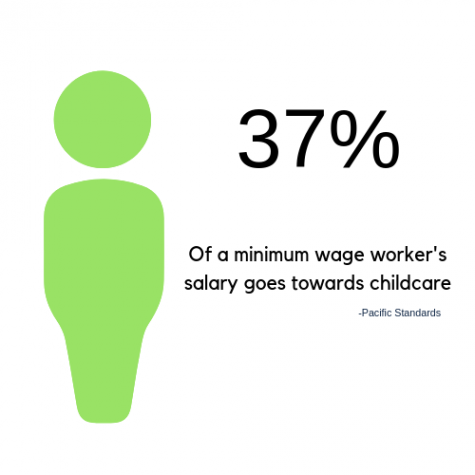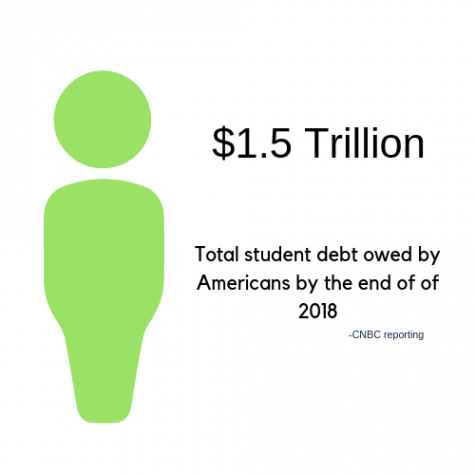Baby blues
Why newer generations refuse to have kids
April 12, 2019
Chronic nausea, swamping fatigue, strange food cravings, an excruciating delivery and waves of new responsibilities — having a child certainly doesn’t sound too pleasant. And in recent years, an increasing number of millennials and Gen Z folks agree.
Since the 1970s, the number of women who have decided not to have kids has nearly doubled. According to the Centers for Disease Control and Prevention, “the fertility rate in the United States has been falling for years, dipping so low that the nation’s population would be declining without immigration.” Suddenly, young people don’t want to have children, and older generations are questioning why.
The truth is, many people today simply can’t afford to have a child. While most MVHS students live in a bubble of affluence and probably won’t ever experience being “broke” or crippling debt, the many others our age must deal with these problems as college expenses and adult life approach.
Over the years, American society has placed greater emphasis on education, and now a college degree is just as necessary as a high school diploma to get an adequately paying job. But college is expensive, and student debt inevitably builds up — by the end of last year, Americans owed nearly $1.5 trillion in student debt in total.
Occupied by their struggle to financially sustain themselves, for many millennials and Gen Zers, family and relationships are simply not priorities in comparison to work and school. American psychologist Jean M. Twenge conducted research proving that young adults today are engaging in less sex, as people in their early 20s are nearly 2 times more likely to be abstinent compared to Gen Xers in their 20s.
In addition to financial sacrifices, there are also l emotional sacrifices that parents must make . Caring for a child, for example, is extremely draining on our bank accounts and our minds – suddenly we’re caring for another human being in need of new diapers, infant formula and parental love.
But why are people so concerned with newer generations not having children? From an environmental standpoint, the decreasing birth rate actually benefits our planet. The slowing population growth rate not only decreases carbon emissions, but also prevents mass starvation and pollution due to overpopulation (as warned by Paul Ehrlich in his book The Population Bomb). On top of that, unplanned and teen pregnancy rates have dropped.
Nonetheless, the youth are the future of our society, and they will be the ones powering the engines of today’s nations. If fewer and fewer children are born, the workforce will decrease, and what lies ahead for human society may not be so pretty. Even so, the decreasing birth rate is clearly not simply a matter of selfishness but rather a matter one of prioritizing financial stability and other factors. Until society can create a system in which younger generations don’t need to fight to keep their heads above mountains of debt, it doesn’t seem likely that we will change our minds about having children.


















